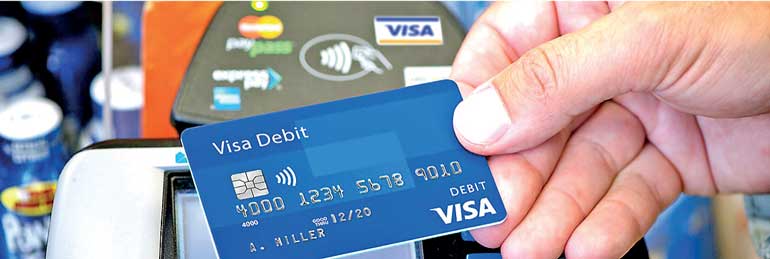Sunday Feb 22, 2026
Sunday Feb 22, 2026
Friday, 13 October 2017 00:00 - - {{hitsCtrl.values.hits}}

Visa, the global leader in digital payments technology, on Wednesday announced an independent study, conducted by Roubini ThoughtLab and commissioned by Visa, examining the economic impact of increasing the use of digital payments in major cities around the world, including Colombo, could help the city realise $ 200 million annual net benefits.
The study estimates that relying more on electronic payments, such as cards and mobile payments, could yield a net benefit of up to $ 470 billion per year across the 100 cities studied – roughly the equivalent to 3% of the average GDP for these cities.
For instance, Colombo, with a population of 694,000 and GDP of $ 6.5 b, could gain $ 200 million annual net benefits. Estimated catalytic impacts for the city over the next 15 years include 20.4 basis point increase in GDP growth rate and 2.1% increase in employment.
‘Cashless Cities: Realising the Benefits of Digital Payments’ is a unique study that quantifies the potential net benefits experienced by cities which move to an “achievable level of cashlessness”—defined as the entire population of a city moving to digital payment usage equal to the top 10% of users in that city today. The study does not look at eliminating cash. Rather, it seeks to quantify the potential benefits and costs of significantly increasing the use of digital payments.
By reducing reliance on cash, the study estimates the immediate and long-term benefits for three main groups—consumers, businesses and governments. According to the study, these benefits could add up to combined direct net benefits of approximately $ 470 billion across the 100 cities that were analysed:
Visa, India and South Asia Group Country Manager T.R. Ramachandran said: “Cities are the new engines of economic growth. To unlock their true economic potential, and become globally competitive, cities must embrace digital payments. This global study shows how becoming more cashless delivers real benefits to governments, businesses and consumers, stimulating long-term economic growth. Colombo could achieve, on average, $ 200 million in annual net benefits– roughly the equivalent to 3% of the city’s average GDP.”
As cities increase use of digital payments, the positive impacts can extend beyond financial benefits to consumers, businesses, and government. The shift to digital payments also may have a catalytic effect on the city’s overall economic performance, including GDP, employment, wage, and productivity growth.
Roubini ThoughtLab Head Lou Celi said: “The use of digital technologies—from smart phones and wearables to artificial intelligence and driverless cars—is rapidly transforming how city dwellers shop, travel, and live. Without a firm foundation in electronic payments, cities will not be able to fully capture their digital future, according to our analysis.”
‘Cashless Cities: Realising the Benefits of Digital Payments’ offers 61 recommendations for policymakers to help their cities become more efficient through greater adoption of digital payments. Recommendations include undertaking financial literacy programs to help move the unbanked into the banking system, implementing incentives to stimulate innovation focused on scaling new payment technologies, implementing secure open-loop payment systems across all transportation networks and more.
Visa and Roubini ThoughtLab created an online data visualization tool as a companion to ‘Cashless Cities: Realising the Benefits of Digital Payments’. Using the data visualisation tool, individuals can increase or decrease the level of digital usage in each of the 100 cities included in the study to better explore the benefits of a world, less dependent on cash. Visit the online data visualisation tool and download the report at: www.visa.com/cashlesscities.